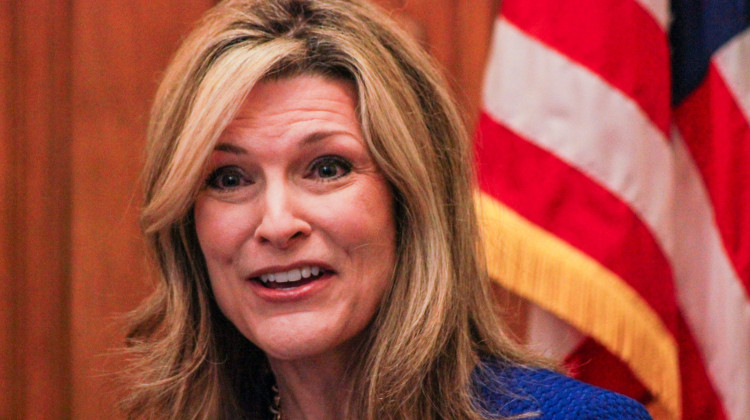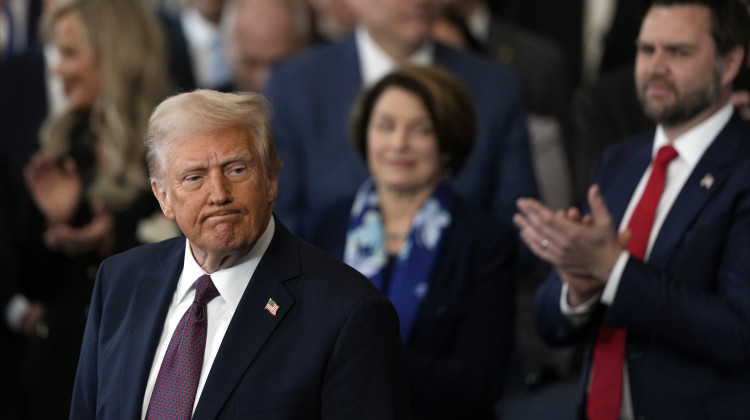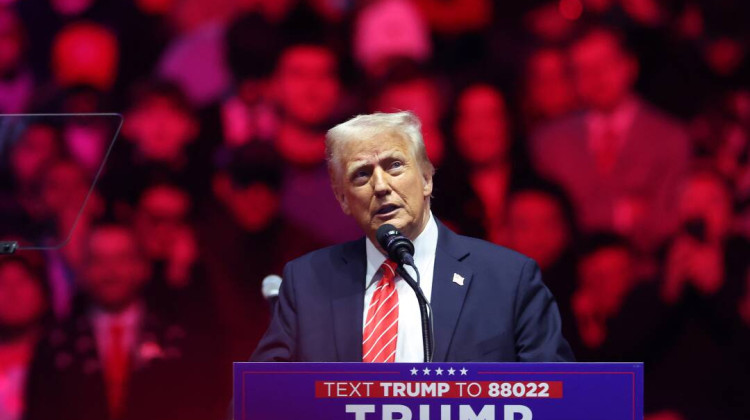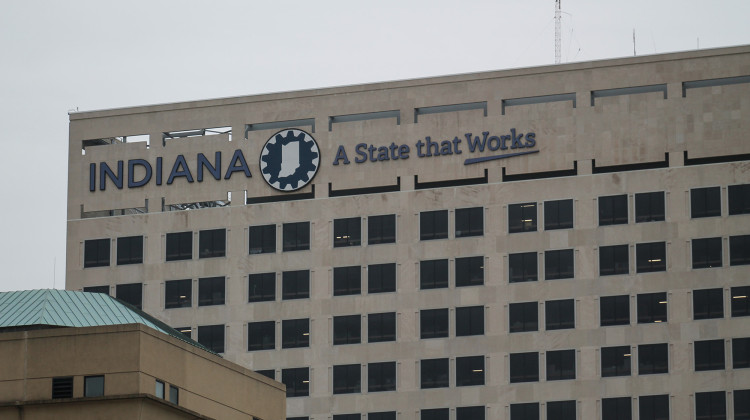
Indiana State Comptroller Elise Nieshalla discussed the state's fiscal closeout during a press conference on July 23, 2024.
Brandon Smith / IPB NewsIndiana closed the books on its fiscal year with more than $2.5 billion dollars in reserve, the lowest amount since the pandemic.
That’s after the state spent more than a quarter of a billion dollars to cover a shortfall in Medicaid funding.
Indiana ended its fiscal year with a $421 million surplus, by far the lowest margin in the post-pandemic era — an era when, up to now, the state had been awash in federal pandemic funding.
Still, Indiana was easily able to cover the fiscal year’s Medicaid funding shortfall. State Comptroller Elise Nieshalla said that’s a credit to fiscal conservatism.
“That stands as a bright light, especially during this time where we are facing a national debt crisis,” Nieshalla said.
The state learned about its Medicaid shortfall last December, when a new forecast revealed the program expected to cost Indiana about $1 billion more than previously expected. So far, the state has covered about half of that shortfall.
There will be a new Medicaid forecast this December, when the state will find out whether its current estimated shortfall of $455 million for the new fiscal year that just started this month will change.
The Family and Social Services Administration has been making major program changes in the last few months designed in part to reduce that remaining shortfall.
READ MORE: Indiana revenues fall short of budget plan in 2024 fiscal year by $136 million
Join the conversation and sign up for the Indiana Two-Way. Text "Indiana" to 765-275-1120. Your comments and questions in response to our weekly text help us find the answers you need on Medicaid and other statewide issues.
The state’s major tax sources grew over the last fiscal year by less than 1 percent — a potential warning sign for the next state budget. But Office of Management and Budget Director Cris Johnston said that’s why robust budget reserves are important.
“Give us the confidence that we’ll still be able to deliver on the services,” Johnston said.
In a statement, Senate Appropriations Committee Chair Ryan Mishler (R-Mishawaka) said he remains “cautious” about increased budget spending, particularly in Medicaid.
Rep. Greg Porter (D-Indianapolis) argued the economy is still strong and said the next state budget will be harder to craft because of large increases in school voucher program spending.
Lawmakers will write a new state budget next year.
Abigail is our health reporter. Contact them at aruhman@wboi.org.
 DONATE
DONATE






 Support WFYI. We can't do it without you.
Support WFYI. We can't do it without you.